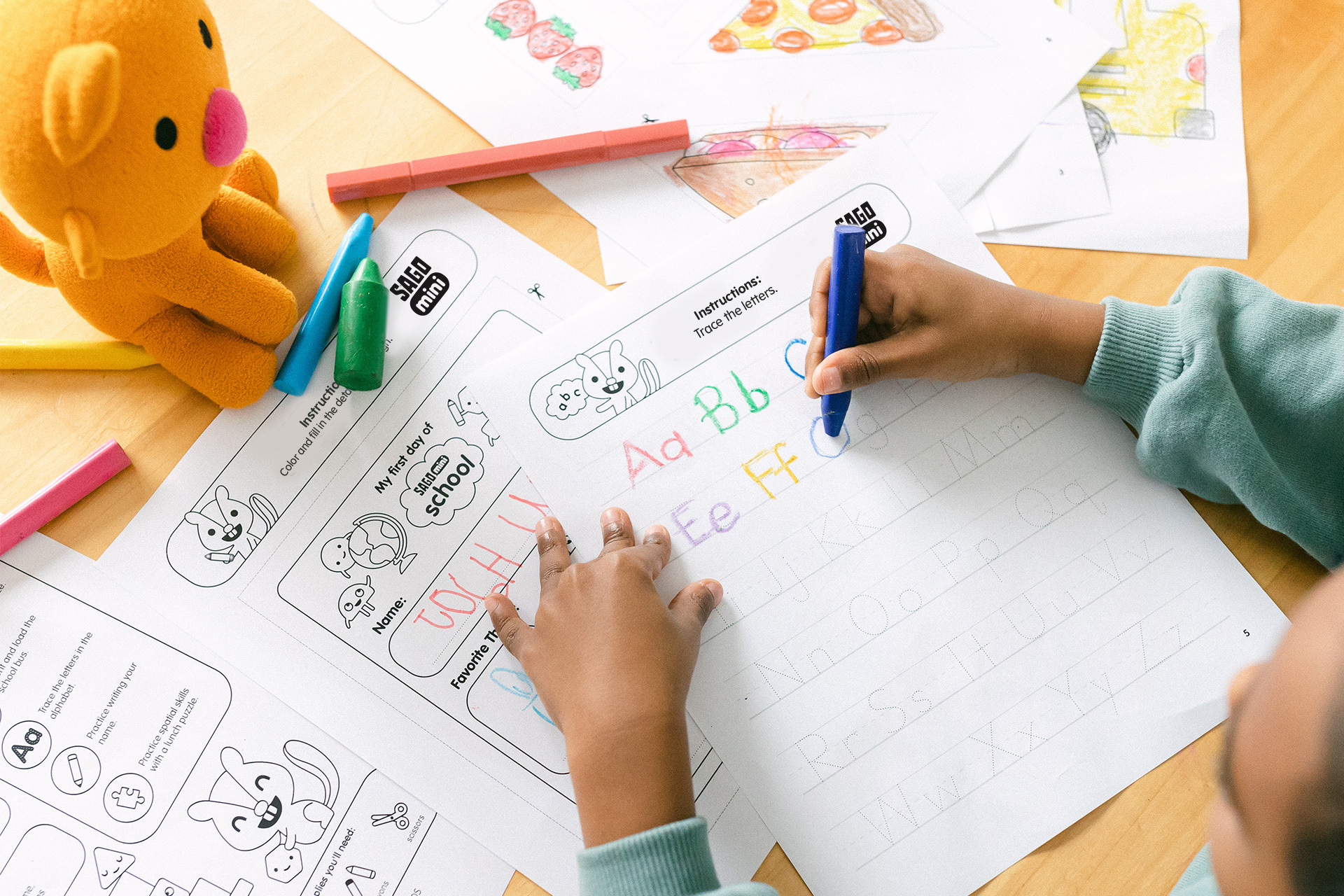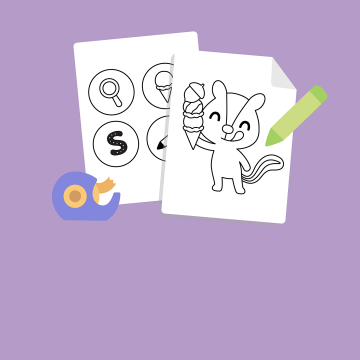- Learning Through Play: Build real-world skills with Sago Mini World
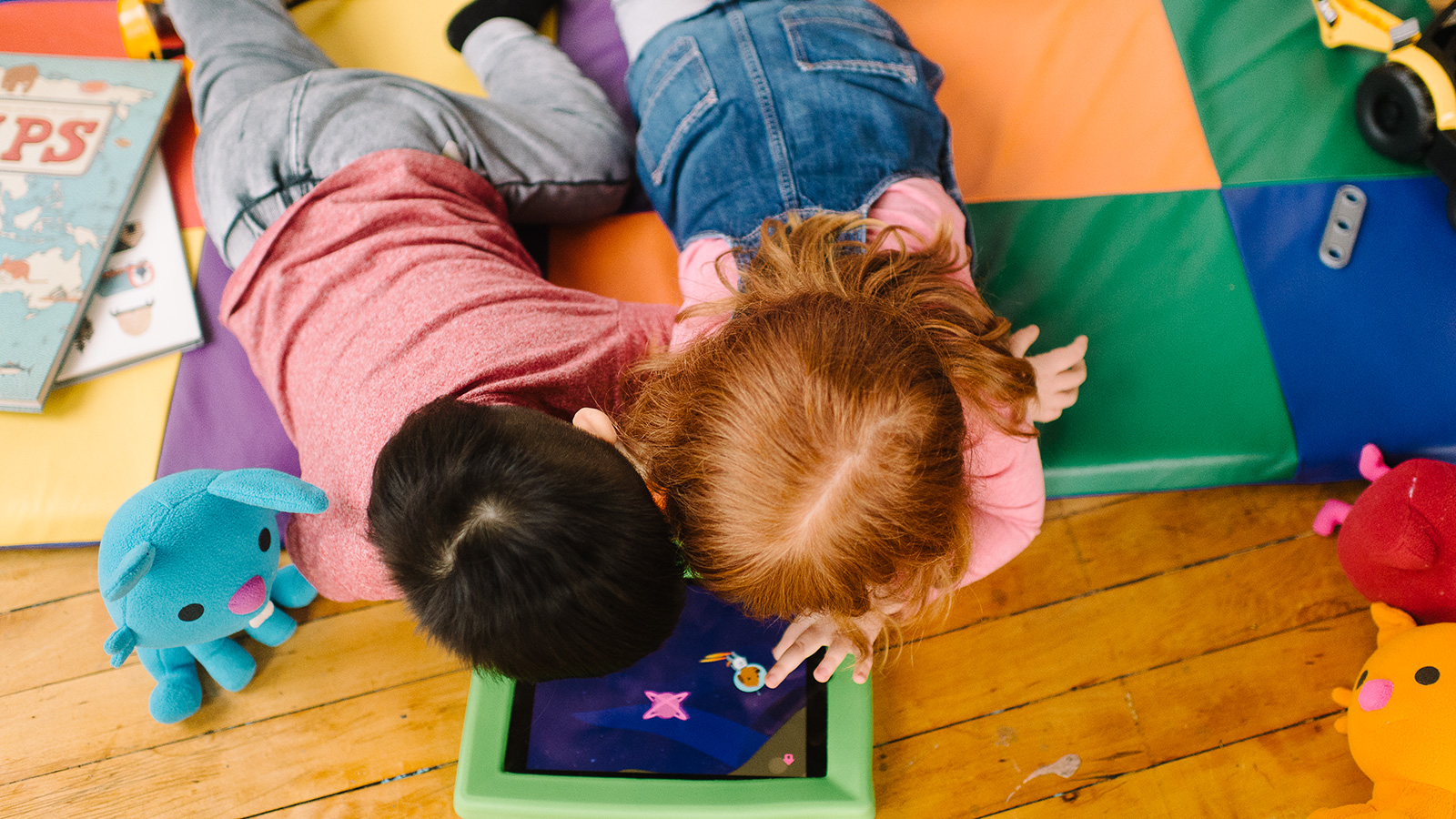
While the human brain is often referred to as the world’s most complex computer, its sole purpose As we now know, the brain needs space to discover, grow & form new neural pathways – and in early learning, much of that is accomplished through open-ended play.
What is open-ended play? It’s play without rules, structures or time-limits – simple as that. It can take the form of exploring a tidal pool at low tide, to building a free-standing structure with simple blocks, to narrating gameplay in an open-ended game (like ours!). Not just endlessly fun, open-ended play allows kids to test theories, try out ideas and play different roles without fear of consequence.
Below, we share a few skills that can be developed through the open-ended games found in Sago Mini World.
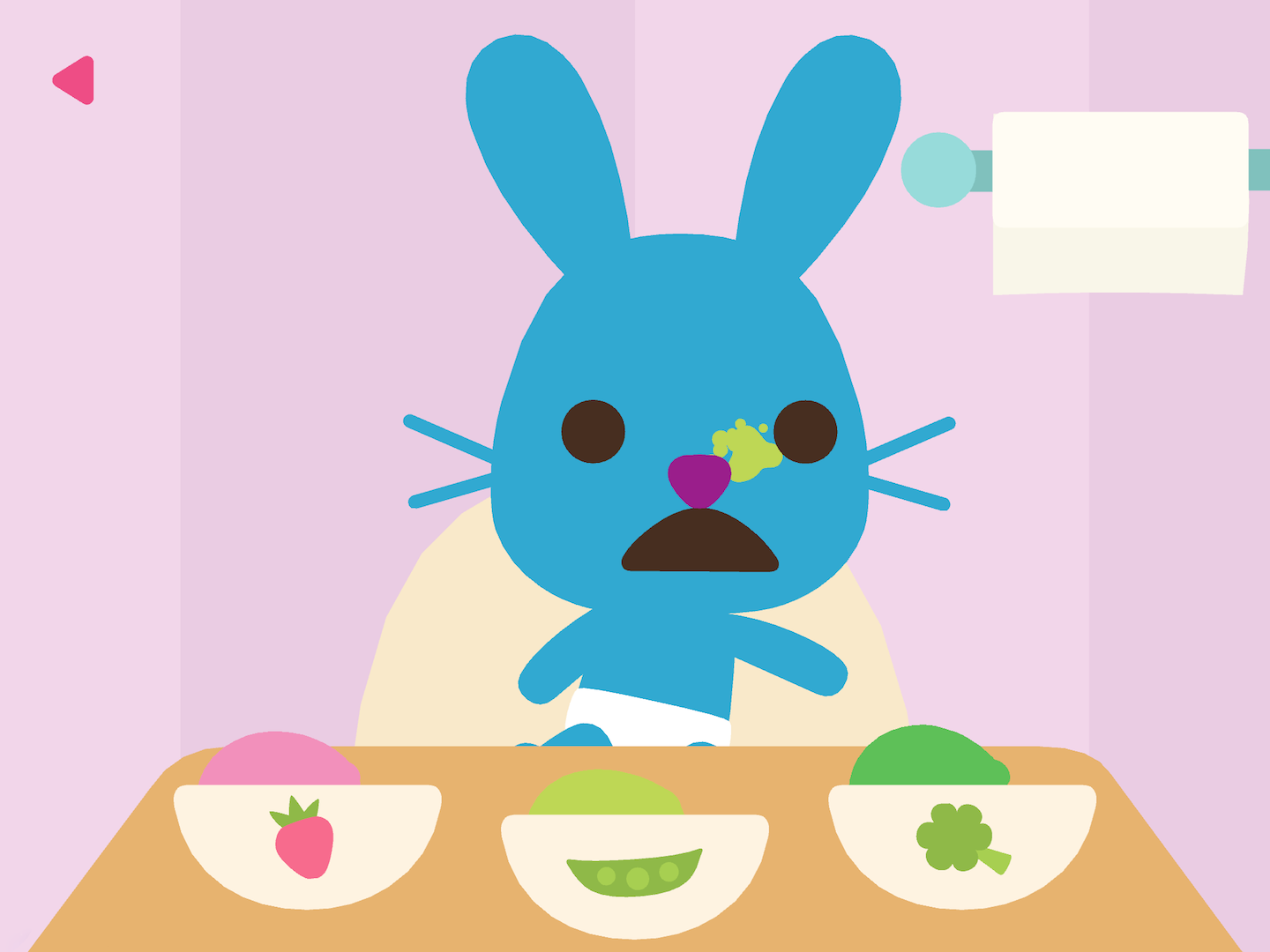
In Babies, the pint-sized versions of the Sago Mini characters cry, get fussy & frustrated, and burp – just like real babies! Kids try out different ways of caring for them – all while building some serious empathy skills.
Empathy Building
Empathy is the glue that holds all other skills together, what helps kids apply learned skills to the real world. We’ve built empathy-building exercises into each of our games: the characters cry, get angry, and burp – basically, just act like real kids! Players interact with characters as they would a friend– teaching them that their actions have ramifications, and that their kind gestures don’t go unnoticed.
Suggested Apps: Babies, Babies Dress Up, Farm

In Robot Party, kids not only design the robot, but “program” it to obtain certain fun surprises, like a button that dispenses endless icing. Because kids are much more interested in cause and effect when they build something themselves!
Creative problem-solving
Creative problem-solving allows kids to tinker endlessly, and try out different solutions – without fear of doing the wrong thing, breaking the rules or failing at a task. In all our games, there are no explicit goals, nothing to win or lose – kids become creators and tinkerers, affecting change in the “world” with every tap. This helps to learn cause and effect, and builds creative thinking along the way.
Suggested Apps: Hat Maker, Town, Monsters, Robot Party, Bug Builder
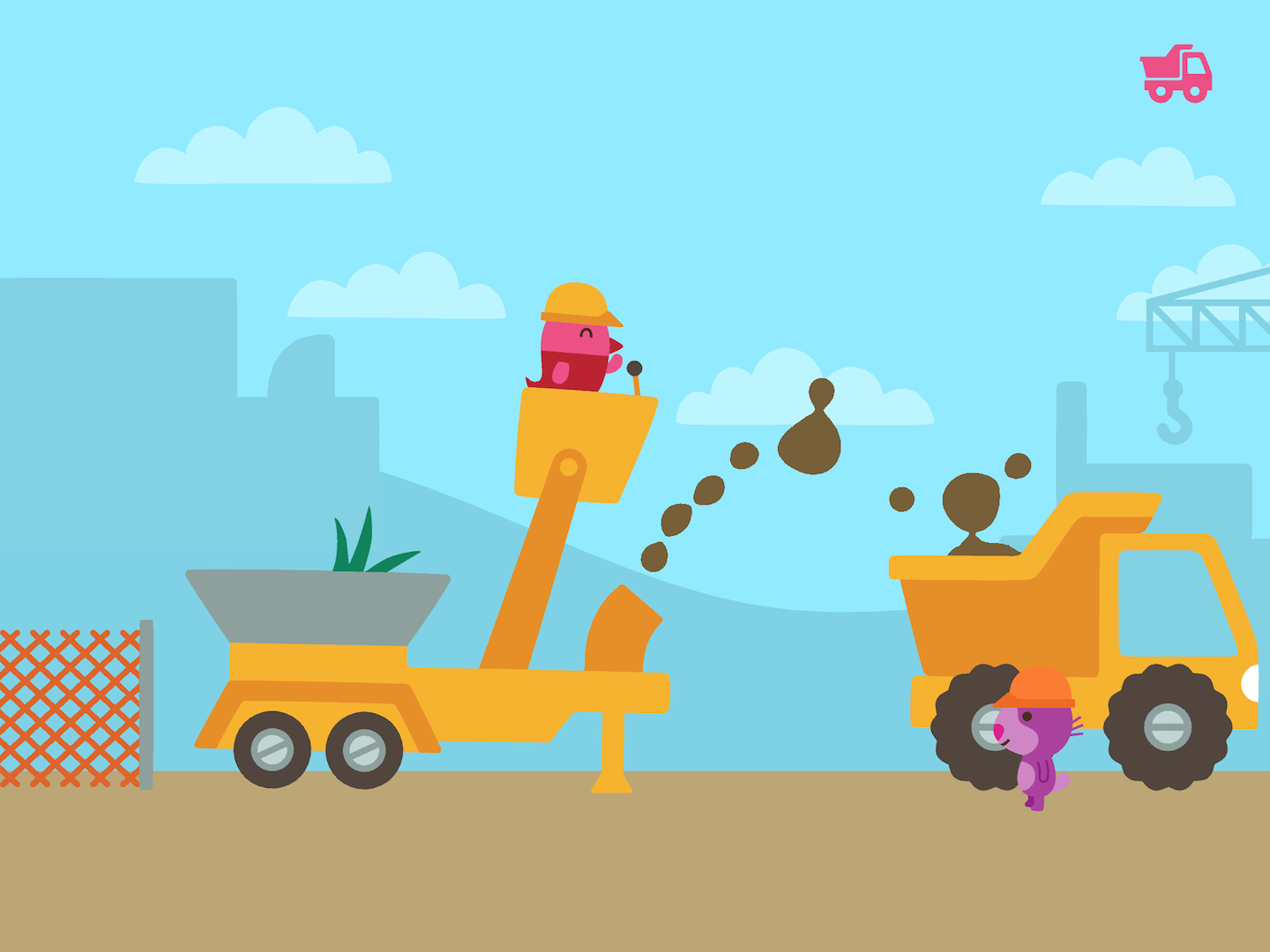
In Trucks & Diggers, kids use basic physics to catapult the dirt into the truck, fine motor skills to deliver the dirt, and project planning as they see if they have enough dirt to fill the structure!
The complex real-world problems we’re asked to solve in our daily work & personal lives are hardly ever limited to one discipline – we use our math skills to cook dinner, social skills and geography to navigate a complicated subway system, and language, organizational skills and a little good humour to write a difficult email. Project-based learning instills this sort of cross-disciplinary style early on, swapping studying one subject at a time for a more holistic approach: students work on projects, not subjects, using a multitude of skills to solve a single problem.
Suggested Apps: Trucks & Diggers, Toolbox
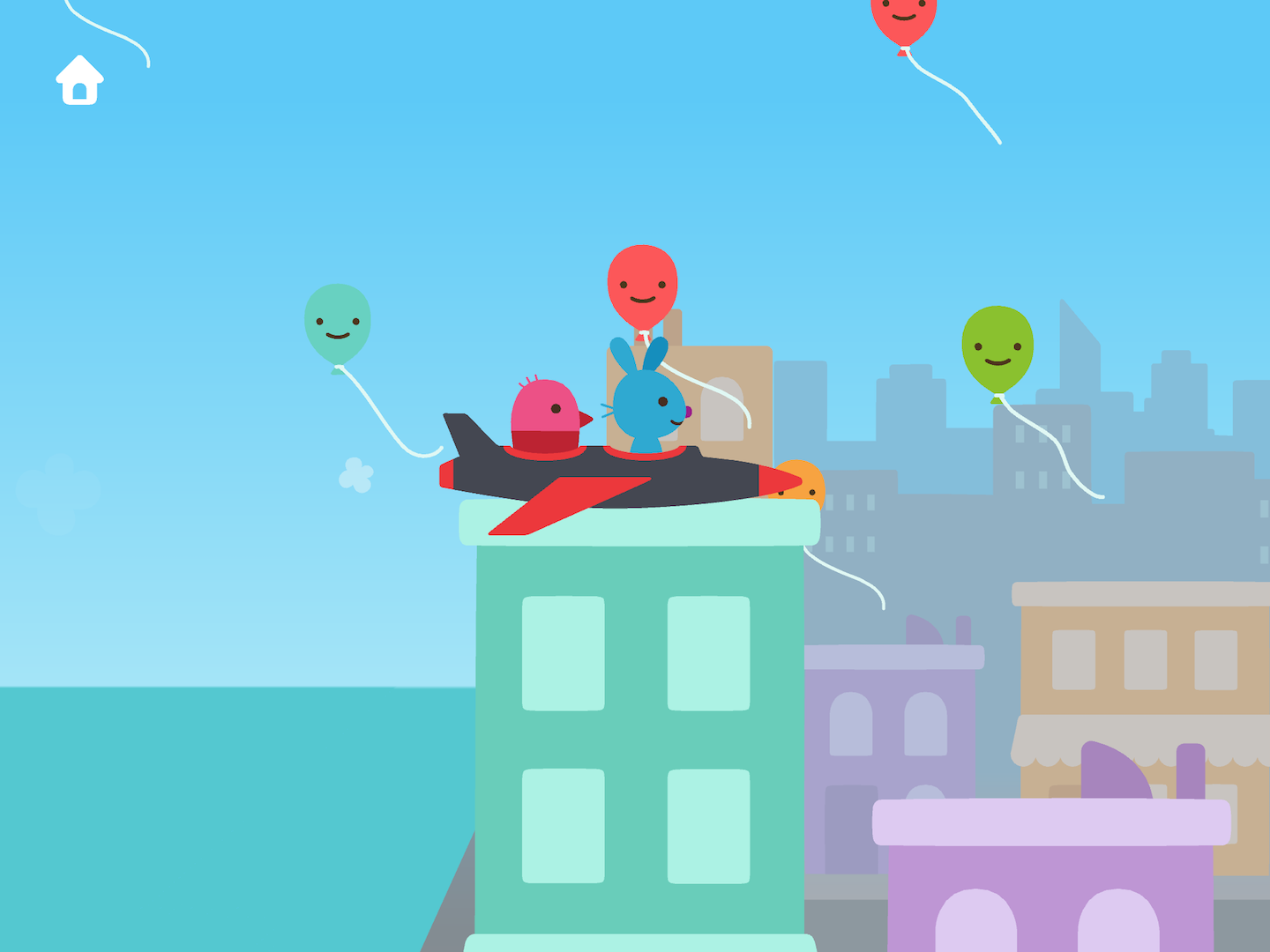
The scene is set – but the story is up to the kids. Where are the characters flying to? Are they delivering a package, visiting a friend, or taking part in an air show?
Storytelling
Other than being an awesome skill on its own, storytelling teaches kids how to externalize their thoughts and harness inspiration into concrete, actionable language. Many of our apps play out like a story book – but without words or narration, the kids are the ones writing their own stories, with the Sago Mini characters and landscapes as supporting actors.
Suggested Apps: Snow Day, Space Explorer, Planes, Ocean Swimmer, Fairy Tales, Boats
The nature of open play is just that: open. We’d love to hear if you & your little learner have developed other skills through other apps that we haven’t mentioned here! Send us a note, anytime, at hello@sagomini.com or message us on social @sagomini.
